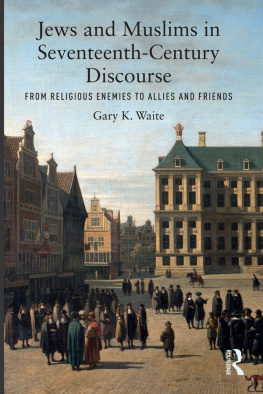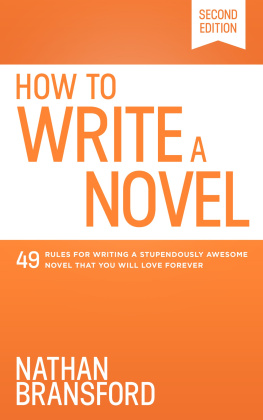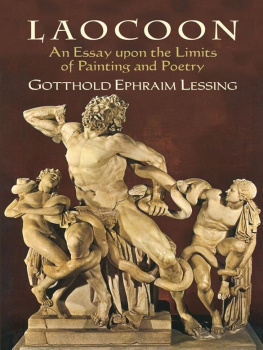Nathan the Wise Nathan the Wise
Nathan the Wise Gotthold Ephraim
Lessing Translated from the German by William Taylor

DOVER PUBLICATIONS, INC. Mineola, New York DOVER THRIFT EDITIONS GE NERAL ED ITOR : MA RY CA ROLYN WA LDREP ED ITOR OF TH IS VO LUME : JA NET B. KO PITO
Copyright Note copyright 2015 by Dover Publications, Inc. All rights reserved.
Theatrical Rights This Dover Thrift Edition may be used in its entirety, in adaptation, or in any other way for theatrical productions, professional and amateur, in the United States, without permission, fee, or acknowledgment. (This may not apply outside of the United States, as copyright conditions may vary.)
Bibliographical NoteNathan the Wise, first published by Dover Publications, Inc., in 2015, is an unabridged republication of the 1830 translation by William Taylor, published by Bernhard Tauchnitz, Leipzig, in 1868.
A Note has been provided specially for this edition. Library of Congress Cataloging-in-Publication Data Lessing, Gotthold Ephraim, 17291781. Nathan der Weise. English Nathan the wise / Gotthold Ephraim Lessing ; translated by William Taylor. p. (Dover thrift editions) eISBN-13: 978-0-486-80579-5 1. (Dover thrift editions) eISBN-13: 978-0-486-80579-5 1.
German drama. 2. Religious toleranceDrama. I. Taylor, W. II. Title. Title.
PT2403.A7T38 2015 832.6dc23 2015003388 Manufactured in the United States by Courier Corporation 79676001 2015 www.doverpublications.com Note The German dramatist and writer Gotthold Ephraim Lessing was born in Kamenz in 1729. Today he is seen as a figure of the Enlightenment eraa period coinciding with the Age of Reason and promoting religious tolerance and the questioning of institutionalized thinking. Lessing chose a literary career after studying medicine, philosophy, and theology. Drawn to Berlin, he showed a talent for writing and began reviewing the literature of the time, especially that of the theater. Because of his contribution to the Hamburg National Theatre, he came to be regarded as the first dramaturgeone who develops theatrical works through research, as well as creating the roster for a theatrical season, hiring performers, and editing the dramatic works themselves. In the 1760s, his dramatic works Minna von Barnhelm and Hamburg Dramaturgy were produced.
Lessing also wrote an influential work of literary criticism, Lacoon: An Essay on the Limits of Painting and Poetry (1766). In 1776, he married Eva Knig. Sadly, they lost their infant son, and Eva died shortly after. Lessing died in 1781 after suffering a stroke. Gotthold Lessing wrote what was to be his last work, Nathan the Wise (Nathan der Weise), in 1779; it was first performed in 1783. Because its theme of religious tolerance antagonized the church, the play was not performed during Lessings lifetime.
Set during the Crusades, the drama examines the tensions among three religionsJudaism, Islam, and Christianity. The character Nathan draws from Lessings friendship with the Jewish philosopher Moses Mendelssohn, also a notable figure of the Enlightenment, who encouraged respect for humankinds diverse religious beliefs. ContentsNathan the Wise DRAMATIS PERSON SALADIN, the sultan. SITTAH, his sister. NATHAN, a rich jew. RECHA, his adopted daughter. DAYA, a christian woman dwelling with the jew as companion to Recha CONRADE, a young templar. HAFI, a dervis. ATHANASIOS, the partriarch of Palestine. BONAFIDES, a friar. An Emir, sundry Mamalukes, slaves, &c. THE SCENE IS AT JERUSALEM. NATHAN THE WISE. Introite nam et heic Dii sunt! Apud Gellium. ACT I.SCENE.A Hall in Nathans House. N ATHAN, in a travelling dress, Daya meeting him. D AYA.
Tis he, tis Nathan! Thanks to the Almighty, That youre at last returnd. N ATHAN. Yes, Daya, thanks, That I have reachd Jerusalem in safety. But wherefore this at last? Did I intend, Or was it possible to come back sooner? As I was forcd to travel, out and in, Tis a long hundred leagues to Babylon; And to get in ones debts is no employment, That speeds a traveller. DA YA. O Nathan, Nathan, How miserable you had nigh become During this little absence; for your house N ATHAN.
Well, twas on fire; I have already heard it. God grant I may have heard the whole, that chancd! D AYA. Twas on the point of burning to the ground. N ATHAN. Then wed have built another, and a better. D AYA.
True!But thy Recha too was on the point Of perishing amid the flames. NATHAN. Of perishing? My Recha, saidst thou? She? I heard not that. I then should not have needed any house. Upon the point of perishingperchance Shes gone?Speak out thenouttorment me not With this suspense.Come, tell metell me all. D AYA.
Were she no more, from me you would not hear it. N ATHAN. Why then alarm me?Recha, O my Recha! D AYA. Your Recha? Yours? N ATHAN. What if I ever were Doomd to unlearn to call this child, my child. D AYA.
Is all you own yours by an equal title? N ATHAN. Nought by a better. What I else enjoy Nature and Fortune gavethis treasure, Virtue. D AYA. How dear you make me pay for all your goodness! If goodness, exercisd with such a view, Deserves the name. N ATHAN.
With such a view? With what? D AYA. My conscience N ATHAN. Daya, let me tell you first D AYA. I say, my conscience N ATHAN. What a charming silk I bought for you in Babylon! Tis rich, Yet elegantly rich. D AYA. D AYA.
And what of that.I tell you that my conscience Will not be longer hushd. N ATHAN. And I have bracelets, And ear-rings, and a neck-lace, which will charm you. I chose them at Damascus. D AYA. N ATHAN. N ATHAN.
Take you as freely as I giveand cease. D AYA. And cease?Who questions, Nathan, but that you are Honor and generosity in person; Yet N ATHAN. Yet Im but a Jew.That was your meaning. D AYA. N ATHAN. N ATHAN.
Well, well, no more of this. D AYA. I shall be silent; But what of sinful in the eye of heaven Springs out of itnot I, not I could help; It falls upon thy head. N ATHAN. So let it, Daya. Where is she then? What stays her?Surely, surely, Youre not amusing meAnd does she know That Im arrived? D AYA.
That you yourself must speak to. Terror still vibrates in her every nerve. Her fancy mingles fire with all she thinks of. Asleep, her soul seems busy; but awake, Absent: now less than brute, now more than angel. N ATHAN. Poor thing! What are we mortals D AYA.
As she lay This morning sleeping, all at once she started And cried: list! list! there come my fathers camels! And then she droopd again upon her pillow And I withdrewwhen, lo! you really came. Her thoughts have only been with youand him. N ATHAN. And him? What him? D AYA. With him, who from the fire Preservd her life. N ATHAN.
Who was it? Where is he, That savd my Recha for me? D AYA. A young templar, Brought hither captive a few days ago, And pardond by the sultan. N ATHAN. How, a templar Dismissd with life by Saladin. In truth, Not a less miracle was to preserve her. God!God! D AYA.
Without this man, who riskd afresh The sultans unexpected boon, wed lost her. N ATHAN. Where is he, Daya, wheres this noble youth? Do, lead me to his feet. Sure, sure you gave him What treasures I had left yougave him all, Promisd him moremuch more? D AYA. How could we? N ATHAN. Not? D AYA.










 Nathan the Wise Gotthold Ephraim
Nathan the Wise Gotthold Ephraim DOVER PUBLICATIONS, INC. Mineola, New York DOVER THRIFT EDITIONS GE NERAL ED ITOR : MA RY CA ROLYN WA LDREP ED ITOR OF TH IS VO LUME : JA NET B. KO PITO Copyright Note copyright 2015 by Dover Publications, Inc. All rights reserved. Theatrical Rights This Dover Thrift Edition may be used in its entirety, in adaptation, or in any other way for theatrical productions, professional and amateur, in the United States, without permission, fee, or acknowledgment. (This may not apply outside of the United States, as copyright conditions may vary.) Bibliographical NoteNathan the Wise, first published by Dover Publications, Inc., in 2015, is an unabridged republication of the 1830 translation by William Taylor, published by Bernhard Tauchnitz, Leipzig, in 1868.
DOVER PUBLICATIONS, INC. Mineola, New York DOVER THRIFT EDITIONS GE NERAL ED ITOR : MA RY CA ROLYN WA LDREP ED ITOR OF TH IS VO LUME : JA NET B. KO PITO Copyright Note copyright 2015 by Dover Publications, Inc. All rights reserved. Theatrical Rights This Dover Thrift Edition may be used in its entirety, in adaptation, or in any other way for theatrical productions, professional and amateur, in the United States, without permission, fee, or acknowledgment. (This may not apply outside of the United States, as copyright conditions may vary.) Bibliographical NoteNathan the Wise, first published by Dover Publications, Inc., in 2015, is an unabridged republication of the 1830 translation by William Taylor, published by Bernhard Tauchnitz, Leipzig, in 1868.